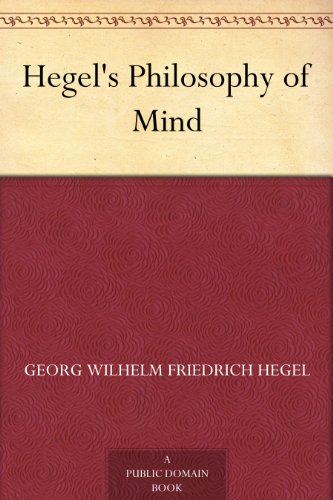Hegel’s Philosophy of Mind Link to heading
Summary Link to heading
“Hegel’s Philosophy of Mind” is a part of Hegel’s larger work, the “Encyclopedia of the Philosophical Sciences,” specifically being the third part. This work delves into the intricate aspects of human nature and knowledge, addressing how the mind evolves and interacts with reality. Hegel explores themes like consciousness, self-consciousness, and reason, proposing that the mind’s development follows a dialectical process, which involves overcoming contradictions to reach higher levels of understanding. The book reflects on how individual cognition is intertwined with the larger objective spirit and ethical community, culminating in the notion of absolute spirit in art, religion, and philosophy.
Review Link to heading
“Hegel’s Philosophy of Mind” has been influential in both philosophical and psychological discussions, offering a profound analysis of mental phenomena. Its strengths lie in its systematic approach and depth, providing readers with a complex but comprehensive view of how the mind operates within the broader structures of reality. However, the book is also critiqued for its difficult prose and abstract concepts, making it a challenging read even for seasoned philosophers. Its dialectical method, while groundbreaking to some, can be seen as esoteric and convoluted to others.
Key Takeaways Link to heading
- Dialectical Process: The development of mind involves overcoming contradictions, leading to higher levels of truth and understanding.
- Mind and Spirit: The interplay between individual cognition and larger structures, including ethical and cultural dimensions.
- Consciousness and Self-Consciousness: An examination of how awareness of self and others emerges and the implications for personal development.
- Absolute Spirit: Art, religion, and philosophy are seen as expressions of the absolute spirit, representing the highest realization of human potential and understanding.
Recommendation Link to heading
This book is recommended for readers with a strong interest in philosophy, particularly those keen on exploring German idealism and the philosophical underpinnings of mind and spirit. It’s suited for advanced students or scholars who appreciate dense, complex texts that require deep analysis and reflection. Understanding Hegel’s concepts can enhance one’s perspective on the dynamic relationship between individual minds and the collective cultural and ethical dimensions of society.
